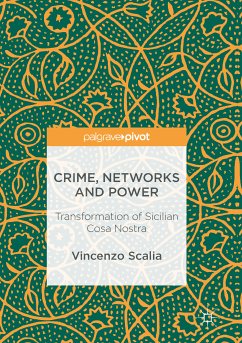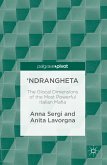This book develops the idea that the Cosa Nostra Sicilian mafia likes and, more than any other criminal organization, follows the patterns of capitalist transformation. The author presents analysis of the mafia under post-fordism capitalism, showing how they rely on increasingly more flexible networks for reasons of both cost and dodging police control, as well as changing their core businesses in relation to the risk that some activities, such as drug trafficking, are likely to incur.
Combining sociology, criminology and labour sociology, the book provides an interpretation of Cosa Nostra which focuses on the connection between legal and illegal economies and politics, thus doing away with the idea that organized crime is always an external entity to society. An authoritative and original study, this book will be of particular interest to scholars of criminal justice, politics and economics.
Vincenzo Scalia is Senior Lecturer in Criminology at the University of Winchester, UK. His interests range from criminological theory to organized crime and also include police culture, urban security and terrorism.
Dieser Download kann aus rechtlichen Gründen nur mit Rechnungsadresse in A, B, BG, CY, CZ, D, DK, EW, E, FIN, F, GR, HR, H, IRL, I, LT, L, LR, M, NL, PL, P, R, S, SLO, SK ausgeliefert werden.
Hinweis: Dieser Artikel kann nur an eine deutsche Lieferadresse ausgeliefert werden.









